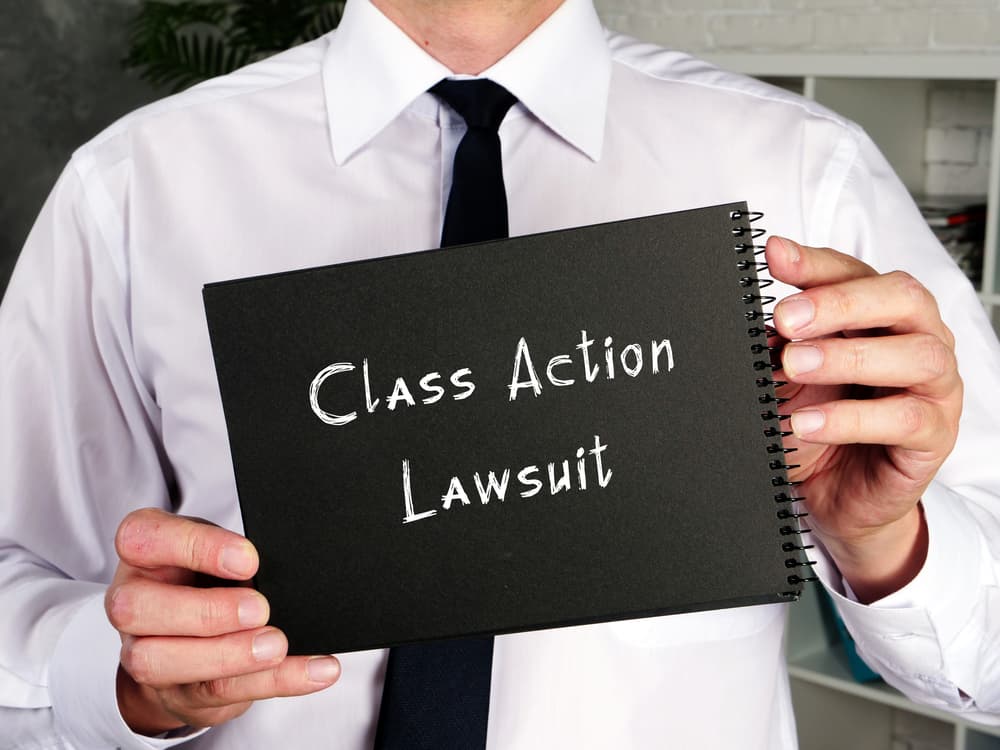When multiple consumers are impacted by the same Telephone Consumer Protection Act (TCPA) violation, they often turn to a class action lawsuit as a collective legal response.
A TCPA class action allows individuals to address widespread issues related to unsolicited calls, texts, and faxes, enforcing their rights under the Telephone Consumer Protection Act.
This blog aims to clarify what is a TCPA class action, what it involves, its importance in upholding consumer protections, and its implications for businesses.
For those affected by potential TCPA violations or businesses seeking to ensure compliance, consulting a TCPA attorney is the first step in understanding how to get compensation for having your rights violated.
Defining TCPA Class Action Lawsuits
A TCPA class action lawsuit is a powerful legal tool used when a group of individuals collectively brings a case against a company for violations of the Telephone Consumer Protection Act.
This act, established in 1991, was designed to protect consumers from unwanted telemarketing calls, faxes, and text messages.
What Are Common Scenarios Leading to TCPA Class Actions?
TCPA class action lawsuits typically arise in scenarios where businesses have engaged in widespread violations of the TCPA. Common examples include:
- Unauthorized Robocalls. Making automated calls to consumers without their prior express consent is one of the most frequent causes of TCPA class actions.
- Unsolicited Text Messages. Sending text messages to large numbers of people without obtaining explicit permission can also lead to class action lawsuits.
- Unlawful Fax Advertisements. Sending unsolicited fax advertisements is another common violation that can result in a TCPA class action.
These lawsuits are not just limited to traditional telemarketing companies. Any business that uses these communication methods can be subject to TCPA class actions.
How Does a Class Action Enforce the TCPA?

Class action lawsuits serve as an important mechanism for enforcing the TCPA. They allow individuals, who might otherwise lack the resources to sue, to join together and challenge violations that affect many people.
This collective approach is particularly effective in addressing widespread issues that individually might be too small to litigate, but collectively represent significant harm.
In a TCPA class action, one or several individuals (known as class representatives) sue on behalf of a larger group (the class) who have suffered similar harm.
This approach provides an efficient means to resolve numerous similar claims, without the need for each affected person to file a separate lawsuit.
For a business, being the subject of a TCPA class action can have significant consequences, including substantial financial penalties.
The statutory damages under TCPA can range from $500 to $1,500 per violation, which, when multiplied over a large class of individuals, can lead to very high penalties. These lawsuits also carry reputational risks and can lead to increased scrutiny from regulators.
Given these stakes, businesses must understand the requirements of the TCPA and ensure their marketing practices comply.
For individuals who believe they have been subjected to TCPA violations, participating in a class action can be an effective way to seek redress.
What are the Criteria for a Class Action Under the TCPA?
In a TCPA class action lawsuit, certain criteria must be met for the case to be considered a class action.
These criteria ensure that the case is appropriately suited for this type of legal action, which involves representing a larger group of individuals who have experienced similar TCPA violations.
Key Criteria for TCPA Class Action Lawsuits
- Numerosity. The class must be large enough to justify a class action. For a TCPA lawsuit to be considered for class action status, there typically needs to be a substantial number of individuals affected. The exact number can vary, but generally, a minimum of 40 members is often considered sufficient to meet this requirement.
- Commonality and Typicality. The claims and defenses of the class representative must be typical of the class members. This means the legal issues or TCPA violations experienced by the representative should be similar to those experienced by the entire class. This criterion is crucial because it ensures that the lead plaintiff's case is representative of the broader issues experienced by the group.
- Adequacy of Representation. The representative of the class must competently protect the interests of the entire class. This involves ensuring that the legal representation for the class is experienced and capable of managing the class action effectively. The representative's attorney must demonstrate the ability to handle the complex nature of class action lawsuits, particularly in the context of TCPA violations.
- Legal Issues Common to the Class. The lawsuit should address legal issues common to all class members. This means that the legal questions or violations being addressed are not unique to individual class members but are shared across the group. A court ruling in such a case would likely apply in the same way to each member of the class.
Challenges in Class Action Certification
In TCPA class actions, plaintiffs often face challenges in meeting the above criteria. For instance, proving commonality can be difficult if consent to receive calls or messages is given in varied circumstances.
The individual nature of consent can be a significant hurdle in demonstrating that the claims are typical of all class members.
Additionally, the adequacy of the class representative is a critical factor. The representative must not only have a valid claim but also be capable of representing the interests of the entire class.
Any conflicts of interest or issues that undermine the representative's credibility can be grounds for denying class certification.
Meeting the criteria for a TCPA class action lawsuit is a detailed and challenging process. It requires a thorough understanding of the TCPA, the exceptions to the law, as well as the ability to demonstrate that the case is suited to this type of legal action.
What Are Some Recent Developments in TCPA Class Actions?
Recent years have seen notable developments in TCPA class action lawsuits, reflecting the evolving legal landscape and its impact on both plaintiffs and defendants.
Surge in TCPA Class Action Filings
There has been a noticeable increase in TCPA court filings, especially class action lawsuits. In 2023, TCPA class action filings surged by 43% compared to the previous year.
This spike indicates a growing trend of class action activities under the TCPA, emphasizing the act's significance in consumer protection litigation
Significant Legal Rulings and Their Influence
Recent legal decisions have shaped the trajectory of TCPA class actions. For example, the Eleventh Circuit's decision in Drazen v. Pinto has influenced how TCPA class action litigation is guided toward settlement.
This and other rulings highlight the importance of adapting legal strategies in response to evolving interpretations of the TCPA
Notable Settlements in TCPA Class Actions
Substantial settlements have been reached in TCPA class actions. In one case, the U.S. District Court for the Eastern District of New York approved a $38.5 million settlement against a national gas service company for TCPA violations.
This settlement demonstrates the potential financial implications of TCPA violations for businesses and underscores the importance of compliance.
How Does a TCPA Class Action Lawsuit Affect Violators?

TCPA class action lawsuits can have a significant impact on businesses, both financially and operationally.
These lawsuits often arise from non-compliance with TCPA regulations and can lead to substantial consequences.
Financial Risks and Penalties
- Substantial Financial Burden. The financial impact of TCPA class action lawsuits can be immense. For example, in a notable case, Domino's Pizza faced a class-action lawsuit for allegedly sending unsolicited text messages without proper consent, leading to a $9.75 million settlement. Similarly, Dish Network faced a major TCPA case resulting in significant penalties for millions of telemarketing calls made in violation of the TCPA. These cases underscore the potential financial risks businesses face for TCPA violations.
- Increased Litigation Costs. Beyond settlements and penalties, businesses also bear the cost of litigation, which can be considerable in class action cases.
Operational and Reputational Impact
- Operational Challenges. Responding to a class action lawsuit requires substantial time and resources, often leading to operational disruptions. This can include dedicating staff and resources to legal defense, potentially diverting attention from regular business operations.
- Reputational Damage. Being involved in a TCPA lawsuit can harm a company's reputation, potentially affecting customer trust and business relationships.
Strategies for Risk Mitigation
- Compliance Programs and Regular Audits. Establishing robust compliance programs and conducting regular audits of communication practices are key strategies to avoid TCPA violations. This proactive approach helps identify and rectify potential compliance issues, thus mitigating the risk of litigation.
- Employee Training. Educating employees about TCPA regulations and the importance of compliance is essential in preventing inadvertent violations.
- Legal Consultation. Consulting with legal experts in telecommunications law can provide insights into compliance measures and help navigate the complexities of TCPA regulations. These experts can assist in developing legal defenses and strategies for lawsuit prevention.
TCPA class action lawsuits pose considerable risks for businesses, emphasizing the need for strict adherence to regulations and proactive risk management strategies.
Implementing comprehensive compliance programs, staying informed about legal developments, and seeking legal advice from an experienced TCPA trial lawyer is key to mitigating these risks and protecting the business from the potential financial and operational impacts of such lawsuits.
Contact a TCPA Class Action Attorney at Kazerouni Law Group

When considering initiating a TCPA class action lawsuit, you will need a law firm with extensive experience in litigating complex consumer class action cases in district and federal courts.
Kazerouni Law Group is a nationwide consumer protection law firm with the resources, talent, and drive to take a class action lawsuit to a positive outcome.
With over $1 billion in settlements, awards, and verdicts, we are the law firm that expects to win the cases we take on.
How We Help People in TCPA Class Action Lawsuits
- Experience in TCPA Class Actions. If you've received unsolicited text messages or automated calls to your cell phone without your express consent, Kazerouni Law Group has the know-how to assess your case. With a deep understanding of TCPA law, we can determine the viability of your claim.
- Personalized Legal Support. Even though there may be many people in a class action, we treat each client as an individual. Your case is personal to you, and it’s personal to us. We make sure your goals for compensation are met.
- Free Consultation for Potential Claims: If you've experienced unauthorized communications in the last four years, Kazerouni Law Group offers a free consultation to discuss your case. Our legal team will guide you through the process, from evaluating the merits of your claim to representing you in legal proceedings.
Are You Affected by TCPA Violations?
If you believe that your rights under the TCPA have been violated, don't hesitate to reach out. Whether it's a matter of receiving unauthorized texts or calls, the legal team at Kazerouni Law Group is prepared to get you the justice you deserve.
Talk to us today and find out if a TCPA class action is right for you.
- Contact us for a Free Consultation. Call the Kazerouni Law Group toll-free at 800-400-6808 for a free consultation with a consumer protection lawyer. You can also chat online with an attorney to discuss your case, get your questions answered and your TCPA concerns resolved.